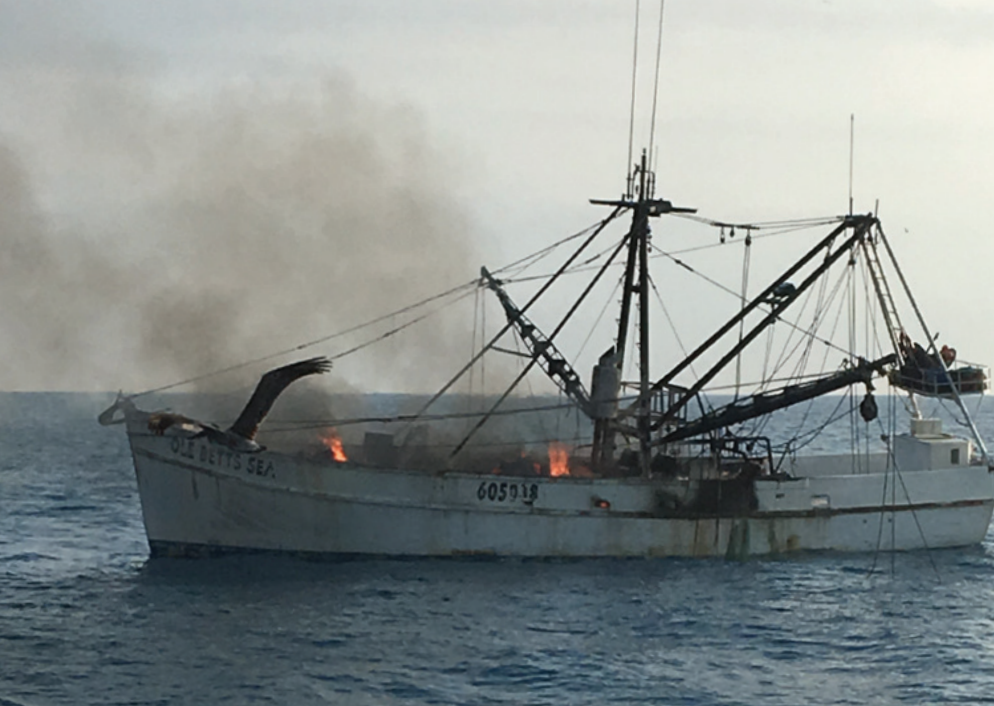Oftentimes it’s the relatively smaller things you didn’t buy that ruin the day. Stuff like remote emergency cut-off valves for fuel and lube oil systems that will remove the source of available fuel in the event of an engine room on fire. Without those devices, a fire can get out of control fast.
That’s what occurred on the 67-foot trawler Ole Betts Sea, which caught fire on March 18, 2018, while fishing in the Gulf of Mexico, as recounted in the National Transportation Safety Board’s recently released Safer Seas Digest 2019: Lessons Learned from Marine Accident Investigations. It’s a collection of 38 accidents involving commercial marine vessels whose investigations were completed in 2019. Fishing boats accounted for 14 of the 38 accidents.
The 2019 digest has seven accident categories: capsizing/sinking, collision, contact, fire/explosion, flooding, grounding/stranding, and hull machinery/equipment damage. Commercial fishing boats ruled the fire/explosion category with seven out of 13 entries. Five of those boats sank, including Ole Betts Sea.
That’s a big jump from the NTSB’s 2018 Safer Seas report when no commercial fishing boats made the fire category, and 2017 when only two fishing boats were listed in the fire section. I’m not sure what that means, other than fishing boats are getting older, and with age comes equipment deterioration and the need to actively maintain existing systems and replace things when needed.
Electrical wiring probably falls into that realm. It was electrical wiring in the engine room of the 87-foot trawler Rose Marie that was considered to be the cause of an engine room fire on Aug. 23, 2018, while she was trawling 67 miles east of Chatham, Mass.
It would also be a good idea to instruct the crew on ways to prevent fires from spreading, such as identify openings — doors, ventilation openings — that need to be sealed completely in the case of a fire, otherwise extinguishers are ineffective.
In at least two cases in the 2019 report — the Rose Marie and the Logger, a 105-foot fish tender — both made use of grenade-type aerosol fire extinguishers, but they were ineffective because the crews did not close all openings. The Rose Marie was towed to Fairhaven, Mass. The Logger was one of the five fishing boats that caught fire and sank.
There are plenty of other lessons to be learned in Safer Seas Digest 2019, but don’t take my word for it, check it out for yourself. And hopefully, when the 2020 digest is published, commercial fishing boats will not be the predominate player in the fire/explosion category.







